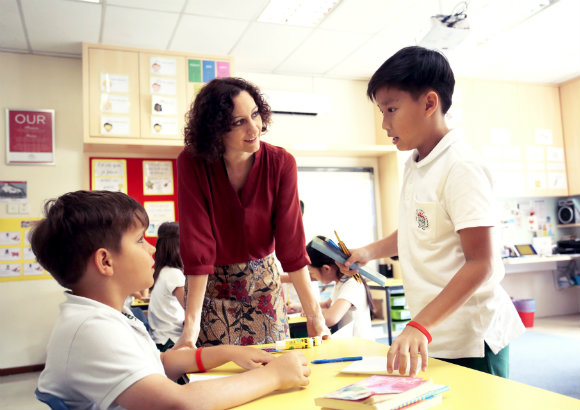The Value Of A British International Education
Published by SchoolAdvisor | Jun 19, 2018By Roger Schultz, Head of School

British education has a worldwide reputation for quality and is recognised and respected around the world. For over seven decades, the Alice Smith School has provided an outstanding British education in Malaysia, its school ethos encapsulated in the tremendous richness and diversity of school life that is such an outstanding feature of the school.
So what makes an outstanding British education and why is it such a good fit for a child’s education? With a significant and increasing number of British curriculum schools worldwide, certainly one of the huge benefits is its transferability. Students are able to move seamlessly from country to country or back to the UK and this is appealing to families who live and work abroad. Also, the formal qualifications students receive after completing examinations at age 16 and above are well known internationally and provide a smooth pathway to post-16 and higher education.

The National Curriculum for England is a broad and balanced curriculum framework inclusive of all of the major arts, sciences and humanities subjects. This wide and diverse scope for learning is coupled with a systematic and rigorous approach for keeping track of progress and encouraging achievement, all the way from primary school to university level.
It has been designed to give students, parents, and teachers a clear overview of a child’s progress with their learning at every educational stage, helping them to identify, work towards and achieve their academic goals. It can be adapted to meet the needs of all students through differentiated teaching and learning activities, whatever their interests or ability.

The benefits of a British curriculum education extend well beyond academic rigor and achievement. Learning through the formal curriculum is essential, but not enough in itself. It is also renowned for concerning itself with the development of the whole child, their character and personality and their social and emotional welfare. Young people develop their potential to explore and discover the world around them, to think for themselves and form opinions, to relate to others, to develop their bodies through sport and physical education, and to gain experience in taking responsibility.
A British international education encourages students to learn by debating, discussing, questioning and problem-solving, developing their higher-order analytical skills. Mastery of subject matter is liberated by independent thought and brought to life through self-confidence, collaboration, and creative thinking. Ultimately, this is a curriculum designed to help young people flourish academically and personally with an appropriate skill set to meet the challenges of a changing world.
One of the most essential life skills is developing an understanding of, and a respect for others. This is embraced through nurturing and fostering respect for one another within both a school’s immediate community and beyond this to the wider community and the region. Children are encouraged to identify similarities rather than differences among cultures and to celebrate and respect other people’s beliefs, opinions, and customs. In many schools, this responsibility towards others extends to outreach and charity work.
Recent Articles
- Beaconhouse Gasing Preschool: Leading Transformation with IEYC Curriculum Introduction
- BSKL and Charterhouse Grad Scores Dream Spot at New York University
- Leannie Liew’s Journey at Cempaka International School: Pushing Boundaries and Discovering Potential
- VOX ISKL: Leveraging Language Learning
- From elc to Harvard: Thamini Vijeyasingam’s Journey to Ivy League Excellence









 Login with Google
Login with Google